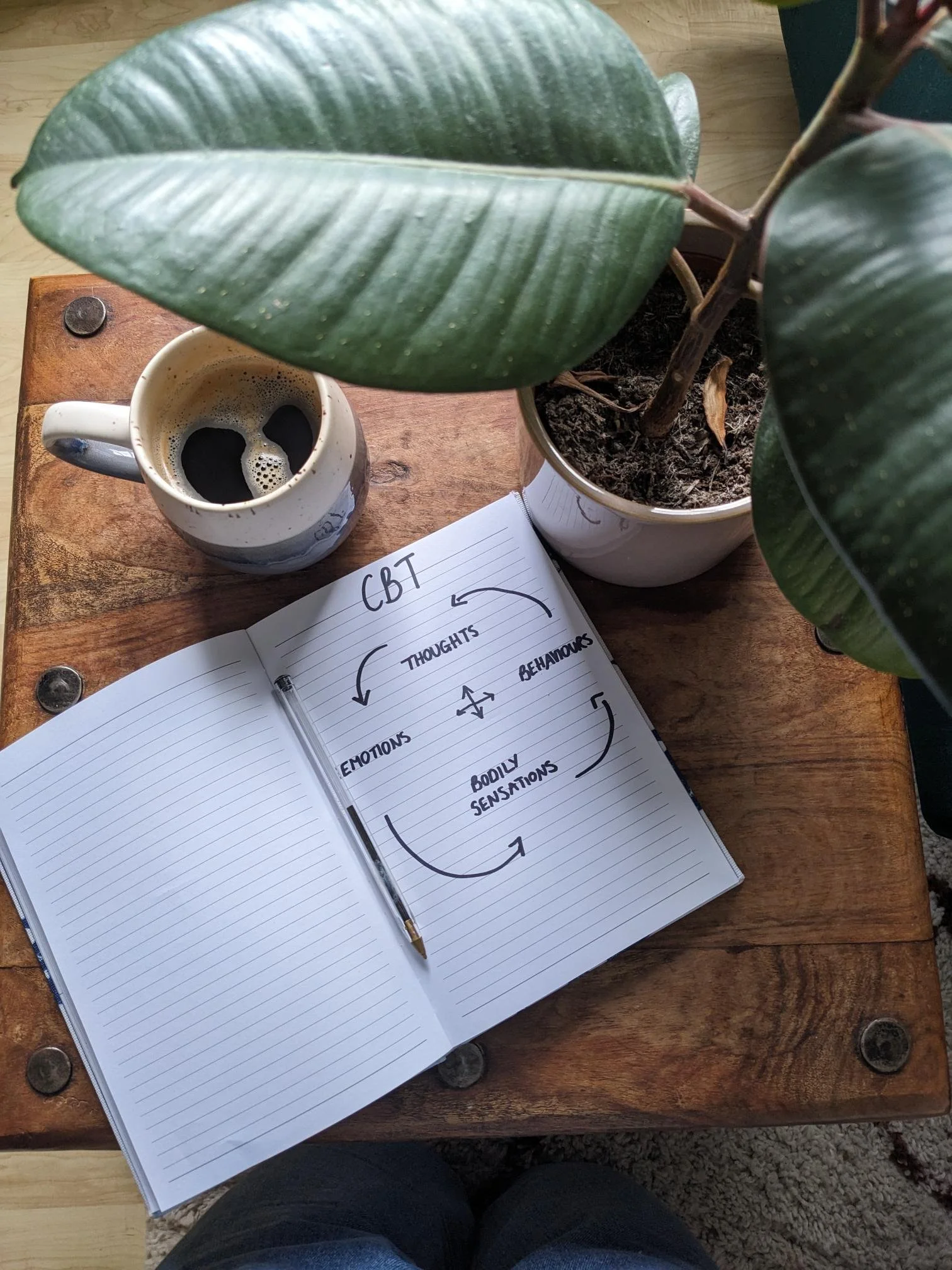What is therapy?
Therapy means a lot of things to different people and there are some common misconceptions. Therapy is an umbrella term for lots of different modalities and approaches. Some of the most commonly known therapies are counselling, cognitive-behavioural therapy (CBT) and Eye Movement and Desensitisation and Reprocessing (EMDR). I personally work within the model of CBT as my primary therapeutic approach and integrate other modalities and approaches along side this. It is also a misconception that you have to be seriously unwell to have therapy - anyone who wants to improve their life can benefit.
What is CBT?
CBT is an evidence-based therapy that is recommended by NICE guidelines to treat common mental health problems. It’s rooted in the here-and-now and is a practical way of looking at your problems. It’s designed to help you understand the interactions between thoughts, feelings and behaviours to help you make necessary changes to feel better. With that said, it comes with home practice , it will only work if you practice consistently outside of the sessions. This approach is collaborative and we will work out what we need to do together.
What should I expect?
In the first few sessions, we will work together to understand what the problem is, what maintains it, plan treatment and start working through strategies. We will also take some time to assess what your goals are. To make sure the therapy I can offer you is suitable, it is essential that we conduct an initial 20 - minute consultation where we will discuss what it is you want to focus on as well as some basic life-style and safety questions. If you’d like to go ahead with therapy and it is suitable, then we can book a block of sessions out in our diaries. We will always aim to end therapy with a relapse prevention plan to help you maintain the progress you make.
